
The ‘Individual vs System’ theme has been used time and again in film after film creating something of a small genre of itself. It is encouraging to see one person or a small group standing up against an all-powerful system even if the end result may be either triumphant or disastrous.
It is the perfect technique to make us root for our main characters as they rebel and face difficulties so insurmountable that we immediately get sucked into their journey. If the journey ends in a success, then its perhaps the most cathartic experience ever.
Conversely, it becomes all the more devastating if our characters crumble in front of the system, their efforts wasted and hopes crushed. These films even manage to infuse a feeling of inspiration in the viewer. After all, rarely someone will stand up amongst a crowd of bowed heads and raise their voice against the so called ‘master’. So without further delay let us get into the list.
(SPOILER ALERT for all the films on the list)
10. High Noon (1952)
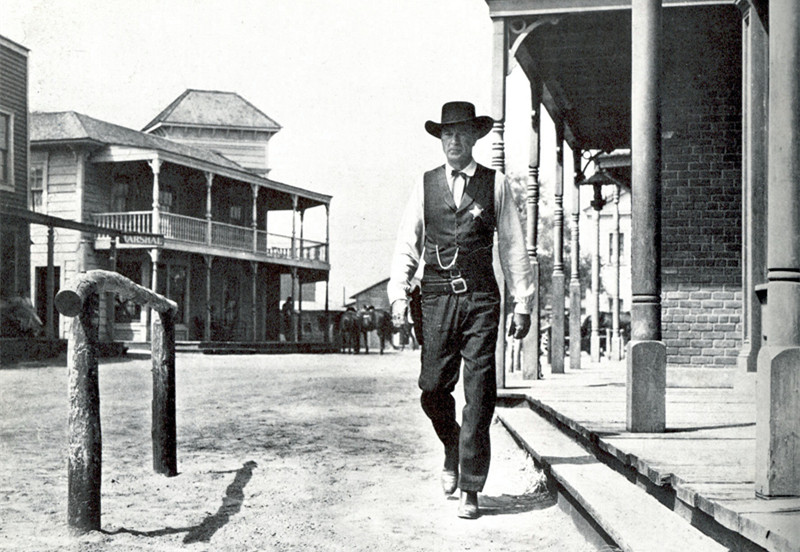
The Individual: Marshall Will Kane, the sheriff of Hadleyville.
The System: Most of the townspeople and even the deputies. Also Frank Miller and his gang of outlaws.
The Clash: One system is surprisingly the people of the town. However, they don’t rally against the sheriff. Rather they refuse to extend their support to him in protecting their own town. Both the lodge and bar owner are more concerned about their business. Frank had friends in both places which made his presence profitable for them. Hence they are bitter about the sheriff removing Frank from the town.
In a scene both the bar owner and the sheriff get into a small fight after the latter overhears him making fun of the sheriff’s decision to face Frank. Then there are the other deputies who initially might have given their word to support him but later backed out for they were worried about the reputation of the town.
Even Herb, who voluntarily wanted to help, left the sheriff at the last moment out of fear. It was literally just one man against a group of four which necessarily is not a ‘system’ but are equally formidable. After the shootout, the sheriff is victorious but not without taking a bullet to his arm. However, this is a victory he is not proud of as the town for which he had done so much betrayed him and left him alone at the crucial moment.
This is brilliantly signified when he takes off his gold star badge and with a disappointed look on his face throws it to the ground in front of all the people as they gathered around the dead body of Frank Miller.
9. The Lives Of Others (2006)
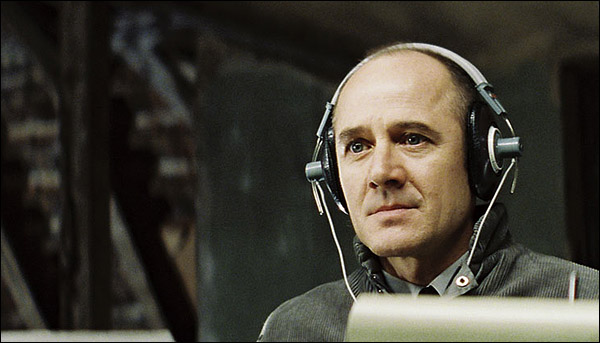
The Individual: Writers like Georg Dreyman and Paul Hauser who use the artistic medium to criticize the GDR of the 1980s. But most importantly its Captain Gerd Wiesler of the Stasi who becomes a significant ‘individual’
The System: The Stasi who governed East Germany before the Fall of the Berlin Wall. Their main motive – ‘To know everything about everyone’.
The Clash: Like most films with the said theme, The Lives Of Others too has the Stasi, a totalitarian and authoritative government which aimed at acquiring complete information about every citizen of the state. This includes spying on people without their consent and employing inhuman techniques of mental torture on suspects. Yes, there are a group of forward thinking writers who dare to raise their voice against the oppressors.
The entire film could have focused on that and specifically on Georg Dreyman. Instead what we do focus on is a Stasi captain. No one would believe that a Stasi member so precise, so determined and so unflinchingly efficient in his work could have had a change of heart and turn against his own organization.
Surprisingly this drastic change is brought during the process of spying on Dreyman. He gets to know intimate details about Dreyman’s life and his artistic voice. This hardened man who once despised the open minded thoughts of artists was now moved while reading a book and listening to some profound music, all from Dreyman’s home. His loneliness is contrasted with the intimate relationship of Dreyman and his girlfriend actress Christa Maria signifying Wiesler’s longing for some kind of personal human contact.
Even after possessing clear evidence about Dreyman’s conspiracy, he doesn’t inform the authorities. In a way through the course of the film while the writers use art to fight against the government, Wiesler silently makes sure that they do it without facing any obstacles.
8. Three Billboards Outside Ebbing, Missouri (2018)
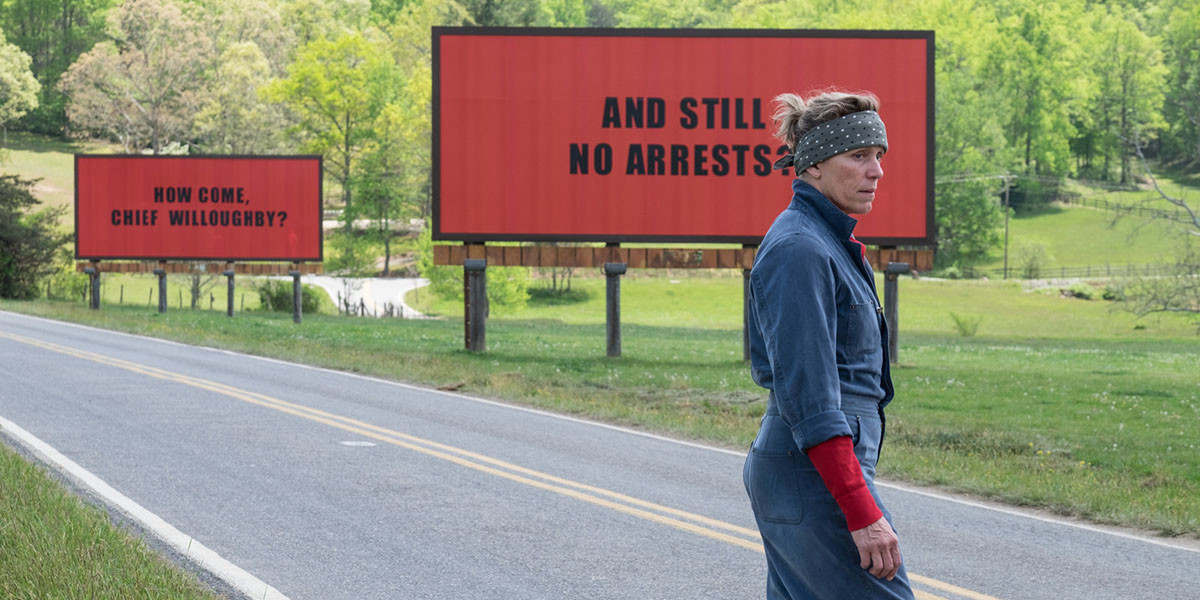
The Individual: The grief-stricken mother of Angela Hayes, Mildred Hayes played by Francis McDormand.
The System: The police department of Ebbing. The chief characters include Chief Willoughby played by Woody Harrelson and Officer Dixon played by Sam Rockwell.
The Clash: The film hinges on Mildred Hayes’ calling out of the police department through the use of three in-your-face billboards. Her dissatisfaction stems from their inefficiency in solving the case of her daughter and wasting time in unnecessarily troubling minorities mainly black folks of the town. By doing so she obviously alienates the police especially Dixon but also a majority of the townspeople.
Even her son Robbie initially resents her. In the scene with the dentist, his behaviour is a summation of the feelings of the entire town towards her. Mildred has more and more people mounting against her and yet she doesn’t budge even after when someone burns the billboards. Interestingly, the film imbues her character with a sense of hypocrisy where on one side she criticizes the treatment of minorities by the police while on the other she clearly does not treat James well even when he extends his support.
The film explores racism and hatred through Dixon’s character who comes to realize the repercussions of his violent behaviour like his assaulting of an innocent Red Welby. Mildred’s efforts don’t go in vain as this causes Dixon to aid her by the end of the film.
7. Paths Of Glory (1957)
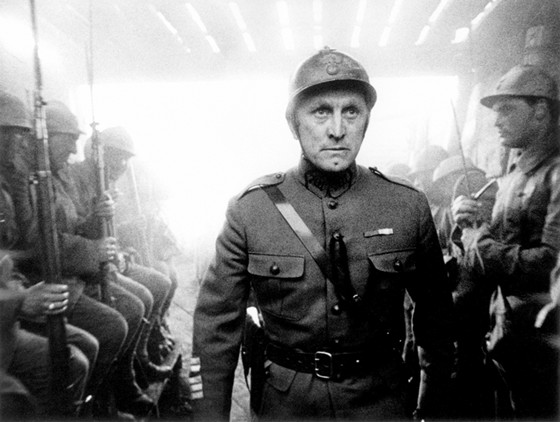
The Individual: Colonel Dax of the 701st Regiment who volunteers to defend the three men accused of cowardice.
The System: The high ranking French officers namely General Georges Broulard and General Mireau along-with his few minions.
The Clash: In this case, there is no all-powerful system that Colonel Dax cannot even touch or reason with. Rather just two high ranking army officials that command entire regiments. The quote ‘Patriotism is the last refuge of the scoundrel’ is referred to by Colonel Dax after he objects to General Mireau’s strategy. The latter believes that one’s love for their country can easily make the impossible, possible.
Later when the accused men are tried before the court, the prosecutor remarks that by showing cowardice, they have ‘stained the flag of France’. Funnily, these big talks about patriotism are just a farce to hide the General’s greed for a promotion and his desire to prove his fellow army officers of his superiority. In his attempts to counter the charges on the three men, Dax’s every argument is dismissed by the court.
Consequently, the three are sentenced to death. Dax even tries to blackmail General Broulard after he finds out that Mireau had ordered artillery attack on his own men in the trenches. It is a reproachable action which deserves severe consequences. Yet these people in power stay untouched. So when Dax says that he is ashamed to be a soldier of this country, his words ring loudly in your ears.
The absurdity of the attack is crystal clear and even more is the hypocrisy of the officials. But even after loud speeches backed with convincing points, the general ignores it all. The three are served injustice and they die at the hands of the firing squad. The anti-war tone and its criticism of the army was something extraordinary for a Hollywood film which used to glorify wars before that. The bleak reality of war is a perfect antithesis to the mainstream war films of that time.
6. One Flew Over The Cuckoo’s Nest (1975)
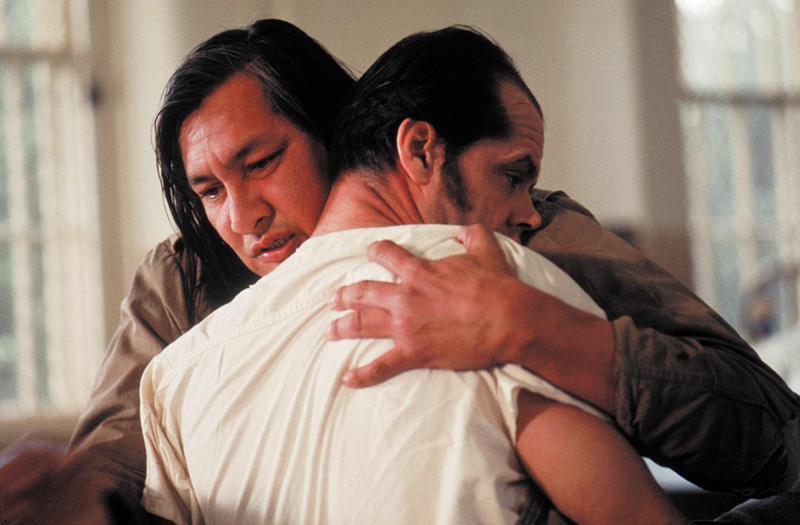
The Individual: Randall McMurphy played by Jack Nicholson in arguably his career best role.
The System: The mental hospital comprising of doctors, nurses and helpers. But it’s the rigid Nurse Ratched who almost takes the personality of an antagonist to McMurphy’s story.
The Clash: The story is about challenging authority. McMurphy is someone who has lived his life by his rules, not accustomed to rules set by any other human being. So when he is denied viewing of the World Series, naturally this becomes an intrusion into his freedom.
The other patients remain controlled or even scared, like Billy, under the influence of Nurse Ratched. But looking at McMurphy fight for basic human needs of joy and fulfillment, stirs up feelings of confidence in them. Naturally the hospital authorities are the best judge for the patients’ welfare. But what’s off in Nurse Ratched’s therapeutic talking session or in her rigid rules is that it either denies them of enjoying their lives or they weaken emotionally under her commanding presence something that she very much wants.
This is evident when she blackmails Billy as she is aware of his sensitive corners. Don’t mental patients deserve to live their lives to the fullest rather than being stuck in a traditional routine? Food for thought. But what’s devastating is that even with his rebelliousness, McMurphy faces defeat after they mentally restrict his freedom through lobotomy. Even in such dire circumstances the film finds hope as we see the Chief escape the confines to an unknown freedom.